Klein kalante verskerp aanslag teen sitrus se luisplae
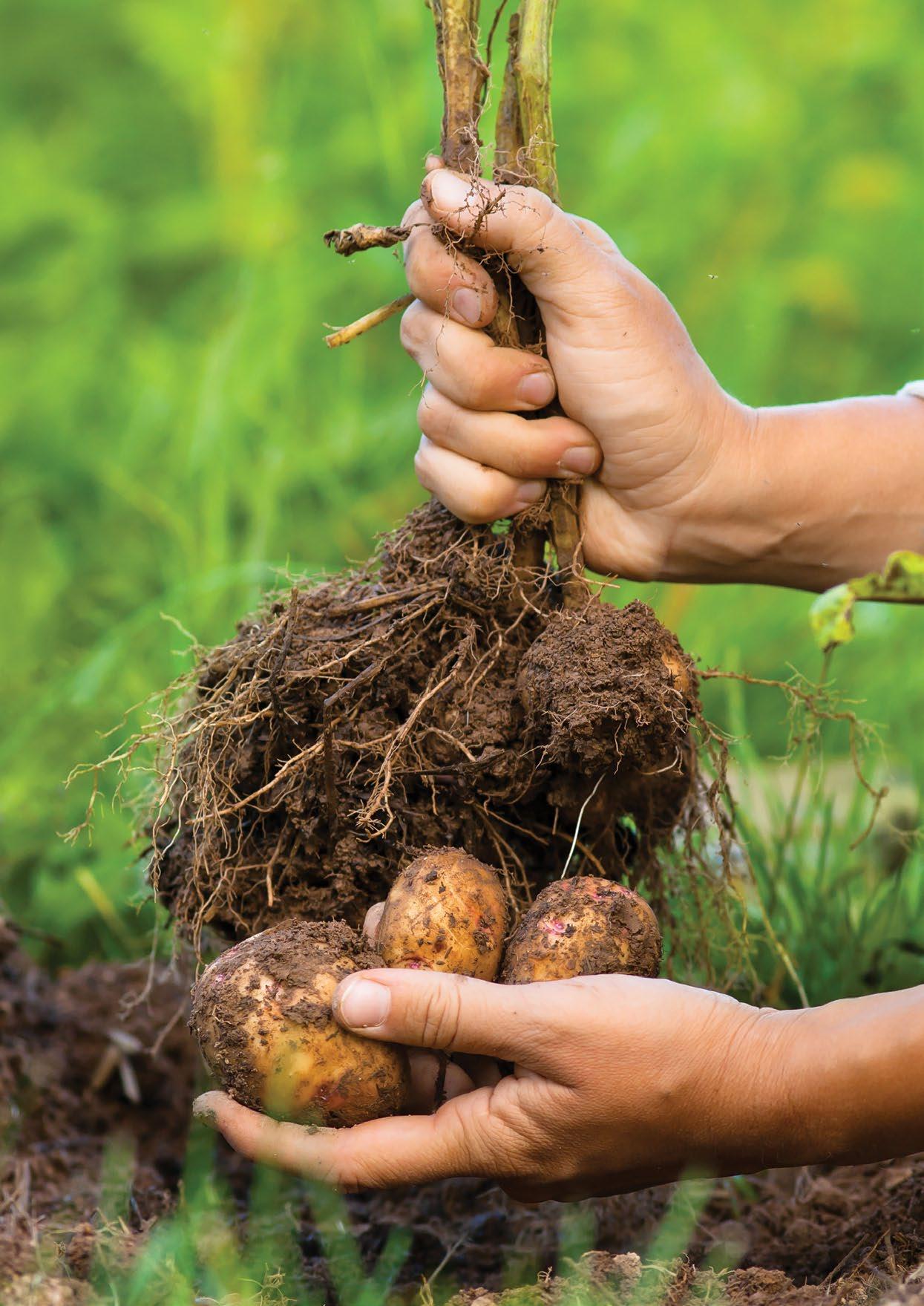
(BTW ingesluit) ander lande uitgesluit (Including VAT) other countries excluded R44,00 No 211 SINCE 1988 JANUARIE • FEBRUARIE 2023
STAR 9037
A COMPACT INDETERMINATE VARIETY WITH LARGE FRUIT AND SHORT INTERNODES
• Ability to keep fruit size to the top of the plant
• Strong plants, uniform setting
• Highly adaptable with stable performance
• Very high yield potential
HR: Verticillium Wilt (Va, Vd), Fusarium Wilt (Fol 1, 2), Bacterial Wilt (Rs), Tobacco Mosaic Virus (TMV).
IR: Root-knot Nematodes (Ma, Mi,Mj), Powdery Mildew (lt), Tomato Spotted Wilt Virus (TSWV).
RENKA
AN INDETERMINATE VARIETY WITH A HIGH YIELD POTENTIAL FOR UNDER COVER PRODUCTION
• Uniform truss
• Keeps size to the top
• Good leaf cover
HR: Verticillium Wilt (Va, Vd), Fusarium Wilt (Fol 1, 2, 3), Tobacco Mosaic Virus (TMV).
IR: Root-knot Nematodes (Ma, Mi,Mj), Tomato Spotted Wilt Virus (TSWV), Tomato Yellow Leaf Curl Virus (TYLCV).
STAR 9011
A DETERMINATE TOMATO HYBRID WITH AN OUTSTANDING FRUIT QUALITY
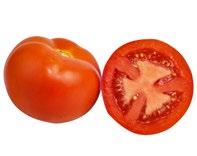
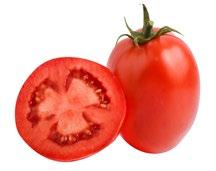
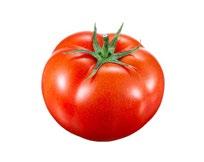
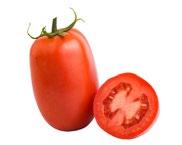
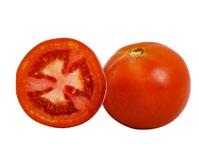
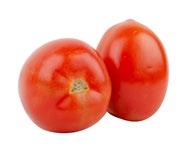
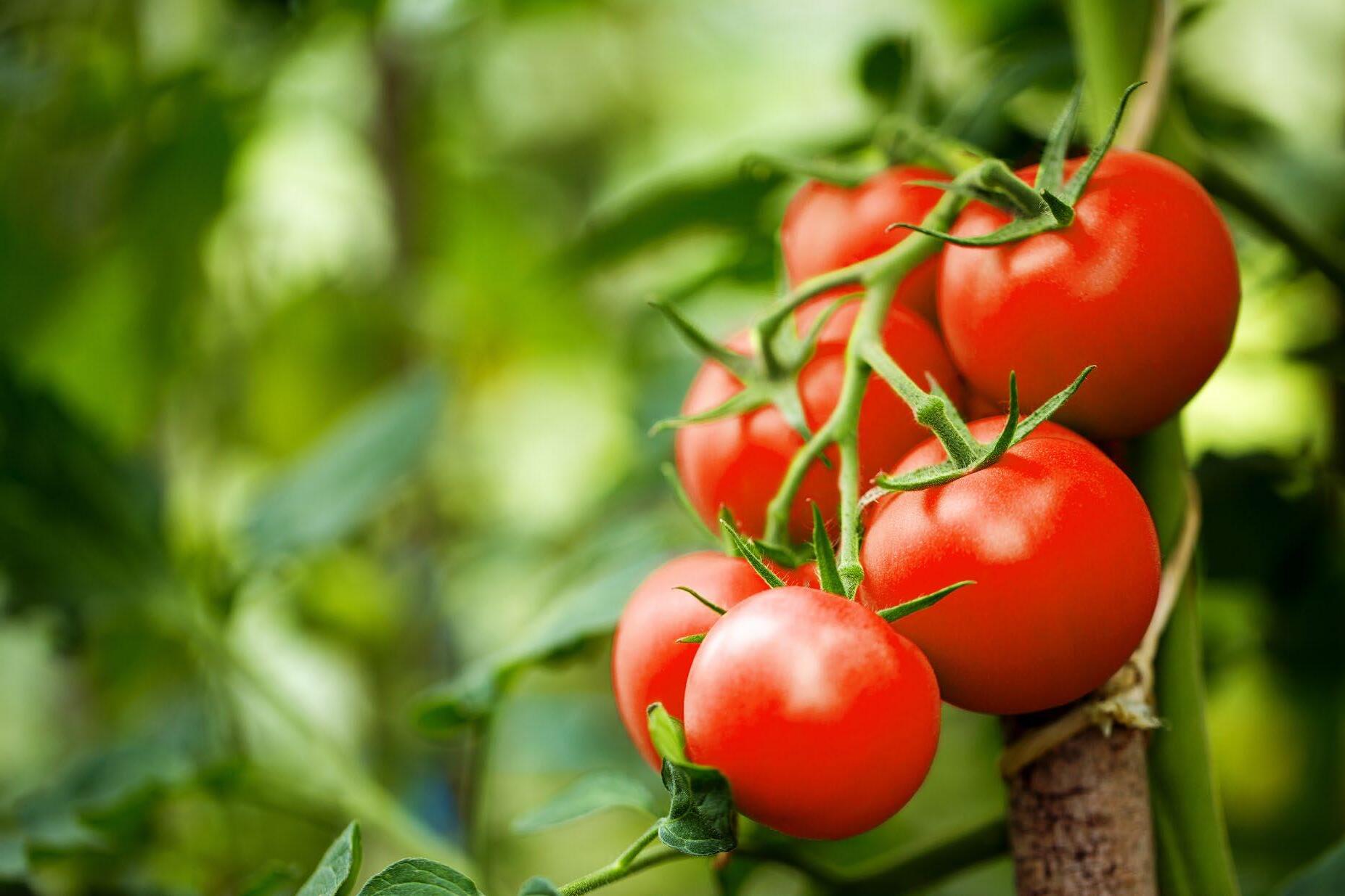
• High fruit quality
• Small attachment, highly re ned fruit
• Excellent avour and taste
• Excellent disease resistant package
HR: Verticillium Wilt (Va, Vd), Fusarium Wilt (Fol 1, 2), Bacterial Wilt (Rs), Tobacco Mosaic Virus (TMV).
IR: Root-knot Nematodes (Ma, Mi,Mj), , Powdery Mildew (lt), Tomato Spotted Wilt Virus (TSWV).
TOMATO RANGE
STAR 9081
AN INDETERMINATE SALADETTE, GREENHOUSE OR OPENLAND VARIETY WITH EXCELLENT LARGE SIZE FRUIT OF VERY HIGH QUALITY
• Early maturing
• Attractive shape and size
• Ability to keep its size to the top
HR: Verticillium Wilt (Va, Vd), Fusarium Wilt (Fol 2), Tobacco Mosaic Virus (TMV)
IR: Root-knot Nematodes (Ma, Mi,Mj)
STAR 9065
A DETERMINATE SALADETTE TOMATO WITH EXCELLENT FRUIT QUALITY ON A HIGHLY DISEASE RESISTANT PLANT
• Compact growth, with a very high yield
• Extended bearing period
• Very attractive shape and size
• Unique disease resistance package
HR: Verticillium Wilt (Va,Vd), Fusarium Wilt (Fol 1, 2), Tobacco Mosaic Virus (TMV).
IR: Root-knot Nematodes (Ma, Mi,Mj), Bacterial Wilt (Rs), Powdery Mildew (Lt).
STAR 9068
A DETERMINATE BLOCKY TYPE TOMATO WITH AN EXTENDED BEARING PERIOD
• Semi- Determinate growth
• Extended bearing period
• Acceptable shape and size
• Idealy for the informal market
HR: Verticillium Wilt (Va,Vd), Fusarium Wilt (Fol 2), Tobacco Mosaic Virus (TMV).
IR: Root-knot Nematodes (Ma, Mi,Mj), Bacterial Wilt (Rs), Tomato Yellow Leaf Curl Virus (TYLCV), (Ty-2).
Edition 211 ISSN 1015-85 37 www.vegetablesandfruitmagazine.co.za
COVER
EDITORIAL
Willie Louw (Group editor)
Carien Daffue (Editor)
082 927 8294
018 293 0622 info@mediakom.co.za PO BOX 20250, Noordbrug, 2522
ADVERTISING
Jana Greenall
011 476 3702 082 780 9914 mediacom@lantic.net
DESIGN
Mercia Venter studio.chatnoir@gmail.com
The potato (Solanum tuberosum) is an herbaceous annual that grows up to 100 cm (40 inches) tall and produces tubers, which are botanically thickened stems that are so rich in starch that they rank as the world's fourth most important food crop, after maize, wheat and rice.
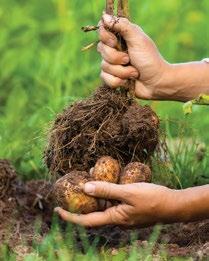
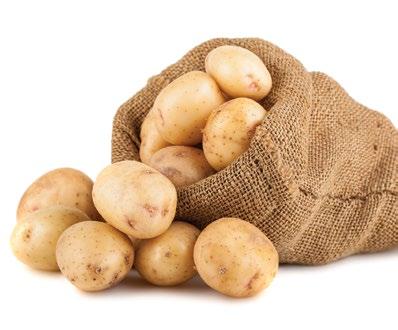
4 Tough season sees citrus growers exporting lower volumes to global markets
5 Spuitklinieke haal die duiwel uit toedienings se detail
6 Agbiz rapporteer goeie vordering met diensverskaffers
6 Specialised oils, lubricants and grease for agricultural machinery
7 SA saffron can compete with best in the world
8 Doelgerigte benadering tot nuwe markte vir die groeiende vrugtebedryf
13 IFPA appoints new country manager for Southern Africa
Bly ingelig en volg ons op Facebook. Keep up to date and follow us on Facebook.


Besoek ons webtuiste | Visit our website: Groente & Vrugte | Vegetables & Fruit www.facebook.com/SAGroenteenVrugte
www.vegetablesandfruitmagazine.co.za
TOMATOES
10 Tomato production: Facing the challenges and recognizing the opportunities
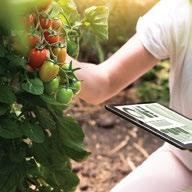
POTATOES
SUBSCRIPTIONS
Available on subscription only - visit website: Slegs met intekening beskikbaar - besoek webblad: www.vegetablesandfruitmagazine.co.za
1 Year @ R235.00 (6 issues)
2 Years @ R450.00 (12 issues)
VAT included
In case of address change, please quote or attach previous address label Special rates for group subscriptions
14 Effek van stikstofbestuur op knolinisiasie
18 Vennootskap integreer praktiese presisie- en pasgemaakte gewas-oplossings
GENERAL
20 Klein kalante verskerp aanslag teen sitrus se luisplae
23 Subtrop se produsente pak vele beperkings vir voortgesette sukses
26 Ultrasol®ine K Plus provides the optimal amount of iodine to the crop
28 Resistance management of potato tuber moth and tomato leaf miner moth
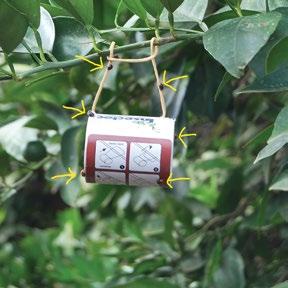
20 10
28 8
NEWS VEGETABLES & FRUIT | JANUARIE • FEBRUARIE 2023 3
Tough season sees citrus growers exporting lower volumes to global markets
Southern African citrus growers packed for export 164,8 million (15 kg) cartons to be delivered to global markets in 2022. While this is an increase of 3,2 million cartons when compared to 2021, it is 5,7 million cartons less than what was predicted at the start of the season.
 Justin Chadwick CITRUS GROWERS’ ASSOCIATION OF SOUTHERN AFRICA
Justin Chadwick CITRUS GROWERS’ ASSOCIATION OF SOUTHERN AFRICA
These figures highlight the extremely tough season growers have had to endure that has negatively impacted their returns and the volumes they were able to export. It threatens the future sustainability of the industry, which sustains over 140 000 jobs and brings in R30 billion in revenue to South Africa each year.
The challenges faced by the industry this season include, a surge in farming input prices and transport costs as well as astronomical shipping price hikes which made the cost of getting fruit to market commercially unviable for many growers.
At the same time, the unjustified and discriminatory new False Coddling Moth (FCM) regulations passed by the European Union (EU) mid-season placed further financial strain and risk on growers.
This means that already tight margins for citrus producers were squeezed to the point where only one in five farms are likely to make a positive return this season.
As a result, while there was modest growth in fruit packed and exported across some citrus varietals when compared to 2021, the final figures were far lower than what was predicted when the season started in March 2022.
The perfect storm of challenges also resulted in a drop in packed export volumes of some varietals when compared to 2021. For example, 16,7 million cartons of grapefruit were packed for export this year, which is 800 000 less than the 17,5 million cartons the previous year. There was also a decrease in the number of cartons of valencia's packed for export, with 53,8 million cartons exported versus 55 million in 2021.
The only other category that saw positive growth was navels, with 27,8 million cartons packed for export in 2022, which was an increase of 600 000 cartons when compared to last year. However, it was 900 000 cartons less than the 28,7 million carton forecast at the start of the season.
The decline in fruit being shipped this season is a particular concern in light of the current forecast, predicting that fruit produced and available for exports will continue to grow by 10 million cartons per year (on average) for the next decade, hitting 200 million cartons in the next five years and growing up to 260 million in the next ten years.
This means the industry could potentially sustain a further 100 000 jobs and generate an additional R20 billion in annual
revenue, bringing its total contribution to 240 000 jobs and R50 billion in revenue, as long as key markets and logistical infrastructure are secured and optimised in order to absorb this increased growth.
Inceased freight costs
Addressing some of the astronomical costs faced by growers is another priority. The significant shipping price hikes that has seen freight costs increased by over 150% over the past two years, has had a devastating impact on growers’ profit margins, putting many of these local businesses at risk. This is why the CGA has commissioned a project with other fruit sectors to investigate options to bring about structural change in the shipping environment in order to control freight rates and improve service delivery. However, the early indication of a normalisation of container movement seen around the world should also bring about a balance in container supply and demand and some relief in shipping rates in 2023.
The CGA maintains the view that the new EU FCM regulations, which will require mandatory cold treatment of SA oranges entering the region, are a major threat to the future sustainability of the industry. These regulations are also completely unnecessary in light of the world-class and highly effective FCM risk management systems already in place.
The CGA therefore continues to support both the Department of Trade, Industry and Competition and the Department of Agriculture, Land Reform and Rural Development in the current dispute lodged at the World Trade Organisation (WTO) and hopes that the process will result in a solution that is mutually acceptable to all parties.
Finally, while there have been some short-term improvements at the country’s ports as a result of interventions driven by Transnet during the 2022 season, the expected annual increase in containers of fruit being shipped from South Africa over the next few years will pose a major strain on the ports, if ongoing infrastructure and operational issues are not addressed.
The CGA therefore remains committed to working with Transnet and other stakeholders during the upcoming 2023 season to identify any issues at the ports and come up with solutions to resolve these. The fact that the process to bring in public-private partnerships into Durban and Ngqura ports remains on track to be concluded early 2023 is extremely positive and it is critical that similar partnership opportunities be explored for Cape Town port.
VEGETABLES & FRUIT | JANUARY • FEBRUARY 2023 4
NEWS NUUS NEWS
Spuitklinieke haal die duiwel uit toedienings se detail
Winsgewendheid, natuurlike hulpbronne, werkerveiligheid en die volgehoue doeltreffendheid van landbouchemiese produkte is alles op die spel wanneer die middels wat gewasse moet beskerm nie behoorlik toegedien word nie. Die gesamentlike groothandelspuitklinieke wat InteliGro en WinField United landswyd aanbied, gee aandag aan hierdie probleem.
“Ons oordryf nie wanneer ons reken dat omtrent 80% van produsente gewasbeskermingsprodukte nie so akkuraat en effektief toedien as wat hulle behoort te doen nie,” sê Gerrie Ludick van InteliGro. As lid van die InteliGro-span wat spuitklinieke aanbied het hy eerstehandse ervaring van hoe groot die probleem is.
Oor die afgelope 18 maande is 15 rygewasspuitklinieke in die Vrystaat, Mpumalanga en Noord-Kaap aangebied en onlangs is die program uitgebrei na die Verre Noorde met klinieke vir sitrusprodusente.
Die spuitklinieke is op twee temas gerig, naamlik die verantwoordelike gebruik van landbouchemiese produkte en doeltreffende toedieningspraktyke.
Die deel van die verrigtinge wat op verantwoordelike gebruik van produkte fokus, sluit onderwerpe in soos hoe om ‘n produketiket reg te lees en te vertolk, waarom dit belangrik is om veiligheidsmaatreëls noukeurig na te kom en hoe om van leë houers ontslae te raak.
Water as die draer van landbouprodukte is een van die belangrikste onderwerpe wat met toedieningspraktyke bespreek word. Die feit dat ‘n sitrusprodusent tussen 2 000 liter en 8 000 liter water per hektaar gebruik om gewasbeskermingsprodukte toe te dien, onderstreep hoe belangrik dit is om nie foute te begaan nie.
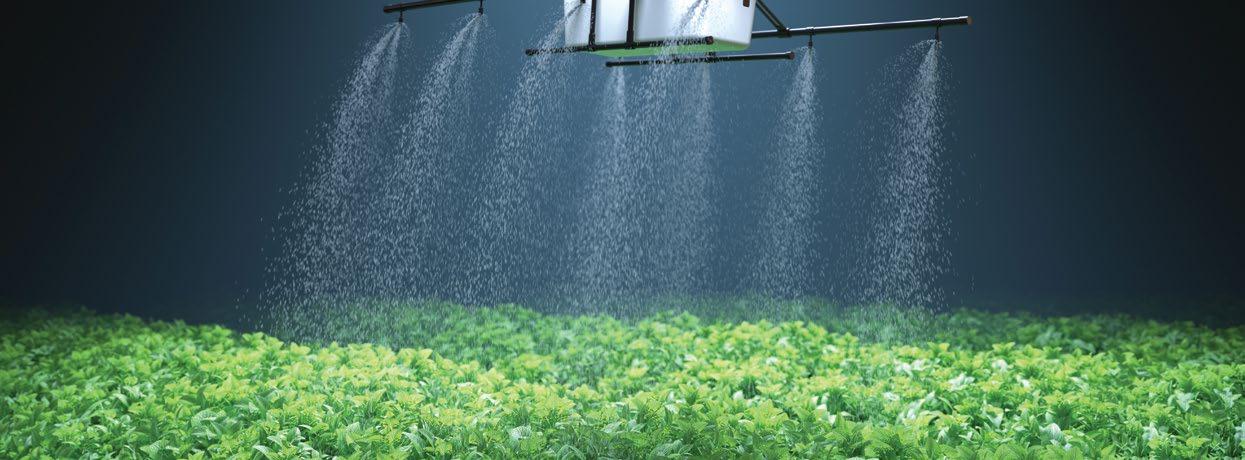
Volgens Duard Bruwer van WinField United-groothandel kan waterverwante foute op twee fronte gemaak word: produsente gebruik te min water in hul tenkmengsels óf hulle maak nie seker dat die waterkwaliteit voldoende is nie.
Produsente moet ook nie aanneem dat die bespuitingswater wat uit verskilende bronne getrek word, grotendeels dieselfde is nie. “Wanneer daar ‘n paar boorgate op die plaas is
en dalk ‘n rivier en ‘n dam of twee, is dit onvermydelik dat die waterkwaliteit van elkeen sal verskil. Die produsent kan dus nie net water uit verskillende bronne in dieselfde chemiese mengsel gebruik sonder om die nodige aanpassings te doen nie.”
Wanneer produsente nalaat om hierdie voorbereiding te doen, gaan die waarde van ‘n toediening grootliks verlore. Nie net is die belegging in die produk daarmee heen nie, maar derduisende liter water is vermors en die risiko vir omgewingskade bestaan omdat toediening nie volgens voorskrif gedoen is nie.
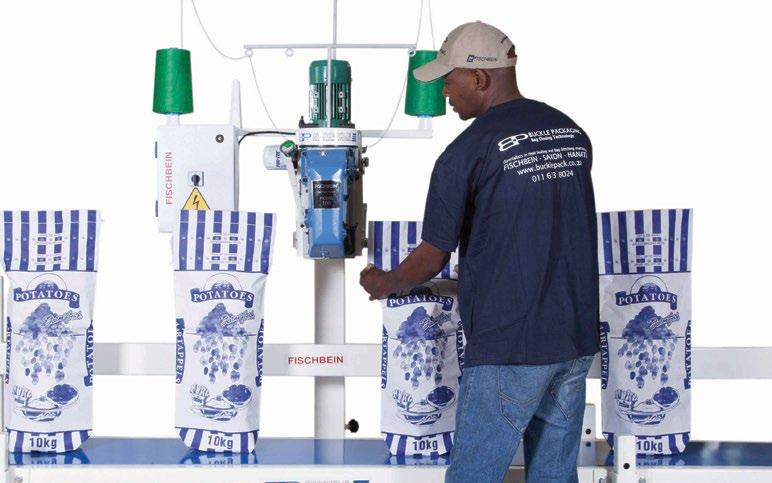
“ ’n Uiters belangrike bykomende faktor is dat ondoeltreffende toedienings die opbou van weerstand aanwakker,” sê Bruwer. “Die volgehoue beskikbaarheid en doeltreffenheid van kwaliteitprodukte is krities en kan slegs verseker word deur produktegnologie te beskerm. Hierdie beskerming berus bykans volledig op toedieningspraktyke.
“Dit is makliker om foute in nat jare reg te maak, maar wanneer reën skaars is hang resultate omtrent heeltemal van akkurate toediening af,” sê Ludick. ‘n Skrikwekkende realiteit is dat groter en beter tegnologie die foutfaktor op ‘n plaas enorm vergroot. Enkele jare gelede was 20 hektaar die meeste wat op ‘n dag gespuit kon word; deesdae kan ‘n hooglooppuit 300 hektaar kafdraf. ‘n Afmetings- of waterkwaliteitfout aan die begin van die dag kan gevolglik katastrofiese gevolge inhou.
“Ons doelwit met die spuitklinieke is om produsente in staat te stel om die volle waarde te kry uit die astronomiese bedrae wat hulle jaarliks aan landbouprodukte en die toediening daarvan bestee,” sê Bruwer. “Doeltreffende toediening is die een produksiefaktor wat volledig binne produsente se beheer is. Die goeie nuus is dat die basiese beginsels nie ingewikkeld is nie – hulle moet net aanhoudend, versigtig en tot in die fynste besonderhede toegepas word.”
InteliGro en WinField United se spuitklinieke is enig van hul soort in Suid-Afrika en fokus op die dwingende vereiste dat alle landbouhulpbronne – mense, die omgewing, finansies en produkte – met respek behandel en bewaar moet word.
5
NUUS NUUS NEWS
Agbiz rapporteer goeie vordering met diensverskaffers
Mariana Purnell MEDEWERKER
Theo Boshoff, uitvoerende hoof van die landbousakakamer Agbiz, het tydens ‘n mediadag berig dat die georganiseerde landbou en relevante partye aktief betrokke is by verskeie inisiatiewe vir verjongings by ondernemings wat aan verslegtende werksomgewings in landelike gebiede blootgestel is.
Boshoff het beklemtoon dat Agbiz se strategiese vennootskappe en die platforms wat geskep word vir interaksie, soos BUSA en Nedlac, van uiterste belang is. BUSA (Business Unity South Africa) bestaan uit 36 lede wat onder meer sektorale en korporatiewe organisasies verteenwoordig, terwyl Nedlac ‘n forum is waar die regering, sakesektor, arbeidsektor en die gemeenskap arbeidsmarkbeleid en ander verwante wetgewing formuleer.
Hierdie samewerking is belangrik om ‘n omgewing te skep vir sake en strek baie verder as net beleid en wetgewing. Deesdae hou die belangrikste uitdagings verband met dienslewering.
Volgens Boshoff is logistiek ‘n belangrike fokusarea en het Agbiz die departement van landbou en Infrastructure SA betrek om aandag te gee aan die swak toestand van paaie in landelike gebiede.
Die departement van landbou het ‘n beperkte mandaat maar sal fokus op die ontsluiting van uitdagings wat verband hou met grondpaaie. Hulle het ook versoek dat Agbiz 'n lys verskaf van paaie wat deur landboubesighede onderhou word ten einde vrystelling van openbare aanspreeklikheid te kry.
Om uitdagings ten opsigte van spoorvervoer en hawens aan te pak is ‘n werksessie in September 2022 met Transnet gehou sodat die belangrikste roetes vir vrugte en graan vasgestel kon word. Die gesamentlike poging was daarop gemik om die kapasiteit wat op landbou-spoorlyne en by hawens benodig word te identifiseer, asook watter infrastruktuur opgeknap moet word en teen watter koste.
Kritieke roetes is vir vrugte en graan geïdentifiseer. Agbiz het ook inligting oor die vereistes vir verskeie landbouprodukte wat tipies van Kaapstad, Port Elizabeth, Coega en Durban se hawens uitgevoer word met Transnet gedeel. Dit is gedoen sodat beter beplanning gedoen kan word vir doeltreffende logistiek oor ‘n wye area en oor die langer termyn. Aandag is veral gegee aan hoe padvrag na spoorvervoer geskuif kan word en watter opknappings aan infrastruktuur of kapasiteit nodig sal wees om dit te bewerkstellig.
Volgens Boshoff is die einddoel 'n ononderbroke en doeltreffende logistieke ketting van die punt van konsolidasie tot uitvoer.
‘n Visuele uitbeelding is gemaak waarop uitvoer vir vrugtesektore aangedui word sodat die wisseling in aanvraag duidelik sigbaar is. Met hierdie uitbeelding het seisoenaliteit en spitstye duidelik na vore gekom. Die tendense het ook vir Transnet die beste tye aangetoon vir beplande onderhoud en die verskuiwing van toerusting.
Volgens ‘n samewerkingsooreenkoms tussen Agbiz en Transnet sal die roetes vanaf kritieke produksiegebiede gekarteer word sodat landboulogistieke knelpunte langs die roetes geïdentifiseer en opgelos kan word. Die uiteensetting van landboulogistiek op ‘n landkaart stel die span in staat om positiewe bydraes te maak ten opsigte van Transnet se strategie. Die inligting maak dit makliker om beleggings, privaatsektordeelname en potensiële vennootskappe te formuleer.
Boshoff het na Agbiz se interaksie met Eskom verwys en gesê daar is aanbeveel dat die fokus eerder moet wees op energie-intensiewe entiteite waar rugsteunkragopwekkers of sonkrag nie 'n opsie is nie. Gebeurlikheidsplanne vir fase 4-beurtkrag en hoër, asook lasvermindering is belangrik. Pasgemaakte skedules, soos skofte van 2 x 8-uur met elektrisiteit en 1 x 8-uur skof sonder elektrisiteit word voorgestel om te voorkom dat masjinerie voortdurend aan- en afskakel en sodat landboubedrywighede beter beplan kan word.
Specialised oils, lubricants and grease for agricultural machinery
When it comes to original equipment, manufacturers (OEMs) producing equipment specifically for the agricultural industry and workshop facilities on farms, Fuchs has a range of lubricants to ensure maximum operational reliability from engines to transmissions and hydraulics.
“The agricultural market is massive. One tends to not appreciate its size because it is seasonal. You can drive past a farm and think nothing is happening, but that is simply because it is not the planting or harvesting period,” says Greg
Tarr, who heads up Technical at Fuchs Lubricants South Africa.
Due to its seasonality, the agricultural industry requires specialised oils and lubricants. Fuchs has therefore formulated products that can withstand the rigours of equipment operating for three months and then stand idle for six. These include engine oils, multifunctional hydraulic and transmission oils, grease and specialised coolants.
In addition, whereas a vehicle such as an on-highway truck encounters up- and downhills that moderate the engine out-
VEGETABLES & FRUIT | JANUARY • FEBRUARY 2023 6 NEWS NUUS NEWS
For more subscribe below














 Justin Chadwick CITRUS GROWERS’ ASSOCIATION OF SOUTHERN AFRICA
Justin Chadwick CITRUS GROWERS’ ASSOCIATION OF SOUTHERN AFRICA

